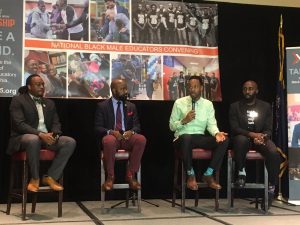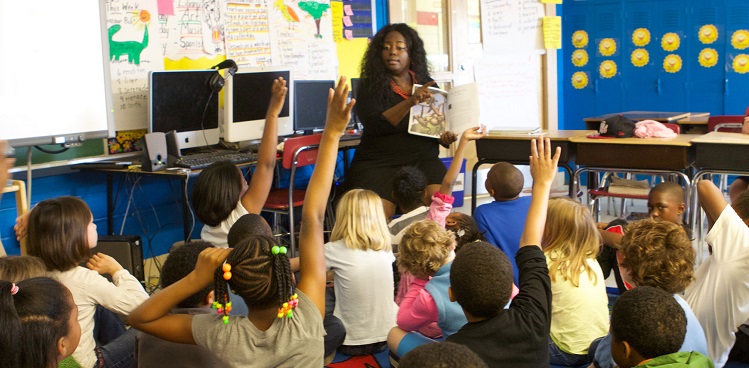 “But I’m just a teacher…”
“But I’m just a teacher…”
We, teachers, change the mindsets of self-doubters, instill a lifelong love of learning for many, care for the children of others as if they’re our own, and play a major role in creating all other professions. Yet, despite those superpowers, many of us have heard or uttered the phrase ourselves, “But I’m just a teacher,” when we’ve been encouraged to pursue leadership opportunities beyond our classrooms, schools or districts.
I’ll confess that I’ve used that phrase at various points during my career as an educator. While it might be difficult to determine why educators are often less confident in the value of their input, the self-doubt is real.
Perhaps it’s the perception that major policy decisions impacting students and schools often occur with minimum input from teachers. Maybe it’s the manner in which social media has a way of amplifying the most critical voices in any topic, including education. Or, perhaps teachers are feeling overwhelmed and fatigued from being frequent targets of criticism for issues beyond their control.
Regardless of the reasons, the voices of dedicated, creative, and solution-focused educators are often overlooked on issues that impact how they do their jobs and serve children.
Special Opportunity for Educator Input
As I’ve gained opportunities over the years to interact with individuals at the state and federal level concerning education issues, I’ve seen the importance of being in the position to share the stories of those who might not have the ability or opportunity to speak out concerning their interests. The Department of Education values and needs the input of those who interact with students on a daily basis. The School Ambassador Fellowship Program is unique because it gives teachers, counselors, librarians and other school leaders the opportunity to provide input and feedback on policy matters that impact their schools and communities.
Although Fellows will have differing goals and interests, the opportunity to hone leadership skills is a universal aspect of the program. I’ve been fortunate to work in numerous contexts as an educator – from preschool to teaching university students. Those experiences have been gratifying. Nevertheless, I’ve always questioned the lack of diversity in our teacher corps. Simply stated, there aren’t enough Black men leading our classrooms.

James Ford, Nathan Gibbs-Bowling, Abdul Wright & Kevin Dua – State Teachers of the Year for NC, WA, MN and MA – discuss their journeys as Black male educators.
Although I’ve had numerous wonderful experiences thus far as a Fellow, it has been extremely rewarding to do work supporting others who also have a desire to increase our percentage of Black male educators. Whether through work as a Teach to Lead critical friend, or as a presenter at the inaugural convening of Black Male Educators for Social Justice, the ability to develop my leadership skills while addressing that topic (and others) has been extremely rewarding. Other Fellows have addressed areas that represent their interests in education, like special education and career readiness.
Elephant in the Room
Let’s be honest. For any number of reasons you might feel that applying to represent teachers on behalf of the Department of Education is just something you don’t feel you can do. And, if your primary reason for applying to the Fellowship is based exclusively on how you feel about issues, it might be best to pursue other opportunities where you can impact our field. However, if you desire to be a voice for the students and families you support at the national level, consider applying. For me, the best time to be a true advocate for my students and my families is, always, right now.
There were 6 Fellows selected for the 2017-2018 cohort. Does that mean you have to be the BEST at something in order to be selected? Not necessarily.
Must you be creative, passionate and eager to contribute to conversations around improving the outcomes of all students? Absolutely!
Most teachers have those skills and many more to spare. They’re our local heroes. What’s your superpower? More importantly, are you willing to share it?
Apply to be a School Ambassador Fellow for the 2018-19 school year through January 31, 2018.
Elmer Harris is a 2017-18 School Ambassador Fellow at the U.S. Department of Education.

